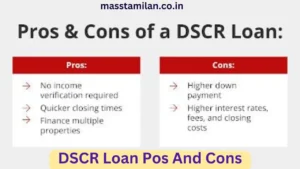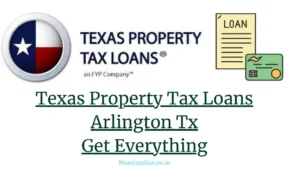Before applying for DSCR Loan you should know “DSCR Loan Pros And Cons”. This will help you to take a right decision before loan credit to your account. So lets start.
First of all, we should know about the DSCR Loan What is it?
A DSCR (Debt Service Coverage Ratio) loan is tailored for real estate investors, emphasizing the property’s income potential rather than solely relying on the borrower’s financial standing. This type of loan evaluates the property’s ability to generate income sufficient to cover its debt obligations.
Central to a DSCR loan is the property’s cash flow, which determines whether its net operating income (NOI) can adequately meet the loan’s debt requirements. The DSCR, calculated by dividing the NOI by the annual debt amount, serves as a measure of cash flow.
Article 370 Movie Review: Yami Gautam’s New Blockbuster
Lenders offering DSCR loans typically seek a ratio of 1.2 or higher. A ratio exceeding 1 indicates that the property’s income can cover its debt. In contrast, a ratio of 1.2 or more suggests that borrowers will not only cover their debt but also have surplus income from the property. Consequently, a higher DSCR signifies lower risk for DSCR lenders.
DSCR Loan Criteria & Specification
| Criteria | Specifications |
| Interest Rate | From 7.5% |
| Origination Fee | 2-3% |
| Loan To Purchase Price | Up to 80% |
| Loan To Value | Up to 80% |
| Minimum DSCR | None |
| Term | 30-year fixed rate |
| Minimum Loan Amount | $150,000 |
| Maximum Loan Amount | $3,000,000 |
| Minimum FICO | 660 |
| Type of Property | Residential 1-4 units |
DSCR Loan Pros And Cons
Like many financial instruments, a DSCR loan program offers both advantages and disadvantages. Let’s delve into the specific merits and drawbacks of a Debt Service Coverage Ratio loan.
Online Loans Fintechzoom $1,000 to $200,000 Loans in 24 Hrs

DSCR Loan Pros
- Focus on Property Cash Flow: DSCR loans are primarily based on the cash flow generated by the rental property rather than the borrower’s personal income. Approval is likely if the net operating income covers the debt with surplus funds, indicating positive cash flow from the rental property.
- No Income Verification: These loans typically do not require employment checks or income verification.
- No Property Quantity Limit: Unlike many conventional loans, there is often no restriction on the number of properties that can be financed with a DSCR loan. This makes them an appealing choice for investors looking to expand their real estate portfolio.
- Versatile Property Types: DSCR loans can be utilized for various property types including single-family residential properties, short-term and vacation rentals, as well as commercial and multi-family properties.
- No Reserves Necessary: For cash-out loans, reserves are generally not mandated in most cases.
- Humanized Approval Process: DSCR loans are typically assessed and approved by individuals rather than automated systems. This means deals aren’t solely reliant on meeting specific criteria set by computer algorithms for approval.
Simplified Loan Solutions: Easy to Get Instant Loan in 2024
DSCR Loan Cons
- Stringent Loan Terms: Meeting loan terms, including down payments and interest rates, can be more challenging compared to conventional loans.
- Lender Fees: Most DSCR lenders impose loan origination fees, which are additional costs on top of the principal loan amount and interest.
- Loan Limits: DSCR loans may offer less financing compared to other loan types, typically ranging between $2 million and $5 million.
- Down Payment Requirements: Many DSCR lenders require a down payment, usually around 20% of the rental property purchase price, though it can vary depending on the lender.
- Minimum Credit Score: Lenders often set a minimum credit score requirement to mitigate the risk of borrower default.
- Loan-to-Value Ratios: DSCR loans typically have Loan-to-Value (LTV) ratios ranging from 75% to 80%.
- Minimum DSCR Requirement: Some DSCR lenders mandate a minimum Debt Service Coverage Ratio (DSCR) of 1.25 to 1.5 for investors, which can be a stringent requirement across most lenders. However, certain lenders like New Silver offer DSCR loan programs without a minimum DSCR requirement.
- Interest Rates: Interest rates on DSCR loans are generally higher compared to traditional mortgages.
- Limited Consumer Protection: DSCR loans do not fall under federal offerings, meaning they are not subject to the same federal consumer protection regulations as traditional loans.

Benefits of DSCR Loans
- Easier Qualification: DSCR loans prioritize the profitability of the investment property over the investor’s financial status, making qualification easier. Investors need only find a profitable property deal without requiring a substantial amount of upfront capital, which is advantageous for self-employed individuals.
- Reduced Documentation: Since minimal personal income information is necessary, there’s less documentation required. This saves time and effort for investors who don’t need to provide extensive income verification, employment history, and other documents.
- Faster Application Process: With fewer documents to process, the application for DSCR loans moves swiftly compared to conventional loans. Decisions can be made more promptly based on essential DSCR information from the investment property.
- Ability to Invest in Multiple Properties: DSCR loans often have no limit on the number of properties that can be financed, allowing investors to purchase multiple properties simultaneously. There’s no requirement to pay off one property before acquiring another, facilitating quicker expansion of real estate portfolios.
- Suitable for New and Experienced Investors: With personal income being less crucial, DSCR loans are suitable for both novice and seasoned investors alike.
- Eligibility for Long and Short-Term Rental Properties: DSCR loans can be used for various property types, including short-term rental properties such as Airbnb, long-term rentals, and commercial properties.
- Approval Based on Deal Merits: DSCR loans are assessed and approved by individuals who can greenlight loans that may not perfectly fit the criteria but are still strong deals. This flexibility benefits investors who find promising deals that don’t entirely match the application requirements.
Disadvantages of DSCR Loans
- Down Payments: DSCR loans typically require down payments of 20% or more, which may pose a significant financial hurdle for some investors.
- Cash Reserves Requirement: For non-cash-out refinancing DSCR loans, lenders may demand six months’ worth of cash reserves. This prerequisite could be challenging for investors lacking sufficient reserves.
- LTV Ratios Below 80%: Loan-to-value (LTV) ratios for DSCR loans usually range from 75% to 80%, necessitating the remainder to be covered by a down payment.
- High DSCR Standards: A Debt Service Coverage Ratio (DSCR) of at least 1.25 is typically considered acceptable while exceeding 1.5 is preferred. Achieving these ratios, especially in pricey real estate markets, can be daunting for investors.
- Higher Interest Rates: Interest rates for DSCR loans often fall between 7% and 9%, considerably higher than those for conventional mortgages. Consequently, investors may face larger monthly payments and overall higher costs compared to traditional loans.
- Difficulty Financing Vacant Properties: Lenders may hesitate to finance properties without tenants since estimating cash flow accurately becomes challenging. Thus, demonstrating sufficient cash flow to cover debt based on actual rental income becomes crucial for loan approval.
- Potential Pre-payment Penalties: DSCR loans lacking federal backing may impose pre-payment penalties on borrowers wishing to settle their loans early.
FAQ
What are DSCR loans, and how do they differ from conventional mortgages?
DSCR loans, or Debt Service Coverage Ratio loans, prioritize the income potential of investment properties over borrowers’ personal financial situations. Unlike conventional mortgages, DSCR loans assess the property’s ability to generate income to cover debt obligations, rather than relying solely on borrowers’ income.
What are the typical down payment requirements for DSCR loans?
Down payments for DSCR loans are typically 20% or more of the property’s purchase price. This can pose a financial challenge for some investors, as it requires a significant upfront investment.
How are DSCR loan approval decisions influenced by property occupancy?
Lenders may be hesitant to approve DSCR loans for vacant properties, as accurately estimating cash flow becomes more difficult. Demonstrating a property’s ability to generate sufficient income to cover debt obligations based on actual rental income is crucial for loan approval in such cases.
What are the key factors impacting the interest rates of DSCR loans?
Interest rates for DSCR loans are typically higher than those for conventional mortgages, often falling between 7% and 9%. This higher interest rate is attributed to the higher risk associated with these loans and can result in larger monthly payments for borrowers.
Are there any penalties associated with paying off DSCR loans early?
Yes, borrowers should be aware that pre-payment penalties may apply to DSCR loans. Since these loans lack federal backing, lenders may impose penalties on borrowers who wish to settle their loans before the agreed-upon term.
Now you are fully confident because you read “DSCR Loan Pros And Cons” carefully. Still if you have any doubt and advise then must comment. we will surely reply to you.




Pingback: Term Life Insurance Cosigner: A Lifesaver For Renters 2024